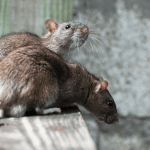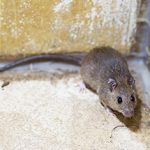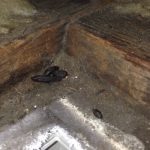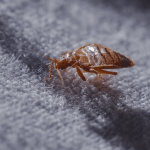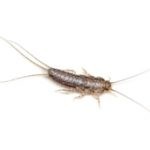How to Get Rid of Rats in Your Home

There is no doubt that rats have adapted to living near humans better than any other wild animal. These resilient rodents show remarkable resilience and successfully withstand various efforts to eliminate them. Therefore, if you’ve spotted signs of these pesky creatures, such as droppings, gnaw marks, or scratching noises in the walls, you’re likely facing a common dilemma: “How do you get rid of rats? Should you tackle the problem with DIY methods, or is it time to call in professional rat control services?”
Both approaches have their pros and cons. They differ in terms of effectiveness, cost, and the time and effort required. Therefore, we’ll break down the key differences, helping you decide on the best way to get rid of rats quickly, safely, and efficiently.
DIY Methods to Remove Rats Permanently
Rats can be a persistent nuisance, but with the right DIY methods, you can eliminate them for good. Whether you prefer traps or natural remedies, there are effective ways to tackle a rat infestation on your own.
Humane Rat Traps
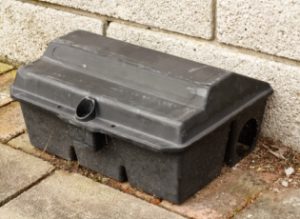 Humane traps (live rat traps) capture rats alive, allowing you to release them safely back into the wild. This method is ideal for those who prefer a more ethical approach to pest control. Humane traps are easy to set up, reusable, and effective for dealing with a small number of rats.
Humane traps (live rat traps) capture rats alive, allowing you to release them safely back into the wild. This method is ideal for those who prefer a more ethical approach to pest control. Humane traps are easy to set up, reusable, and effective for dealing with a small number of rats.
However, they may not be the best solution if you’re dealing with a heavy infestation. In cases of excessive rat activity, humane traps can be time-consuming and less effective compared to other methods, as they require frequent monitoring and relocation of the captured rodents.
For best results, place humane traps in areas where rat activity is most noticeable – near food sources, walls and common rat pathways.
How do Humane Rat Traps Work
These traps work with a baiting mechanism. Baits, such as peanut butter or chocolate, are placed inside to attract rats. When a rat enters, it triggers a mechanism that either closes the door or causes the trap to collapse, securely containing the rodent inside. After that, the captured rats can then be released at a considerable distance from your property.
Lethal Traps
Lethal traps kill rats quickly and efficiently, making them a common choice for dealing with pest infestations. These traps come in various forms, including:
- Snap traps – these are classic and effective pest control solutions. They use a spring-loaded bar that snaps down when triggered. These traps are affordable, reusable, and perfect for indoor environments. However, if not properly used they can be dangerous for children and pets.
- Electric Traps – they use high-voltage shocks to kill rats quickly. They are considered more humane than traditional traps due to their rapid action, minimizing suffering.
- Glue Boards – these devices use sticky adhesive glue boards to capture rats. Although they are effective at trapping rats, they are considered inhumane, as they cause prolonged suffering. Many pest control experts and animal welfare organizations advise against their use.
When using lethal traps, it’s important to place them strategically along rat runways, near entry points, and close to food sources for maximum effectiveness. Always handle traps with care and follow safety instructions to avoid accidental injury.
Homemade Rat Poison
One of the most common homemade rat poisons is boric acid poison. Mix 1 cup of boric acid with chicken broth. Stir the mixture well and add more boric acid if it’s too thin. The strong scent of the broth attracts rats, encouraging them to consume the mixture, which eventually leads to poisoning and death due to the toxic effects of boric acid.
While some people consider homemade rat poison as a quick and cost-effective solution for dealing with rat infestations, it should be used with caution:
- Always wear gloves and a protective mask when preparing or handling boric acid to avoid direct contact or inhalation of toxic particles.
- Ensure that small children and pets are kept out of the treated areas – and ideally, out of the house – while using any form of rat poison.
- Be aware that if a poisoned rat is eaten by other wildlife, such as birds of prey, foxes, or domestic pets, it can cause secondary poisoning and pose a threat to local ecosystems.
Also read our post on How to dispose of a dead rat or if you prefer not to do this yourself, you can book local dead animal removal services.
Natural Remedies for Rat Infestation
If you’re looking for ways to get rid of rats without using harsh chemicals, natural repellents are an effective and eco-friendly way to do it. They are non-toxic and safe for humans and pets. Additionally, these methods are typically more cost-effective and provide a sustainable approach to pest management by using readily available, natural ingredients.
What Smell do House Rats Hate?
- Peppermint oil – it is known for its strong scent, which is unpleasant to rats. To use it effectively, soak cotton balls in peppermint oil and strategically place them in strategic places, such as attics, near entry points and along walls. Refresh the cotton balls weekly to maintain their potency
- Eucalyptus oil – mix a few drops of eucalyptus oil with water in a spray bottle and apply it around your home, particularly in corners, along baseboards, and near potential entry points. This will help mask the familiar scents that attract rats
- Citronella – in addition to repelling insects, it can also confuse rats. Use citronella oil or light citronella candles near potential entry points, such as doors and windows. The strong aroma can deter rats from coming near these areas.
- Cayenne pepper – it is a natural repellent for rats. To create a spray, mix cayenne powder with water and a few drops of dish soap in a spray bottle. Shake well and apply this mixture to areas with rat activity. The strong smell and taste will discourage rats from returning to those spots.
The Benefits of DIY Rat Control Methods
Many homeowners consider do-it-yourself (DIY) rat control methods as a cost-effective and practical solution. Here are some of the key advantages of DIY rodent management, designed to help you make an informed decision.
- Cost-effectiveness – One of the most significant advantages of DIY rat control is its affordability. DIY pest control typically involves purchasing traps, baits, ultrasonic repellents, or natural deterrents, which are often more budget-friendly than hiring professional exterminators. This approach is especially beneficial for managing small infestations or as a preventative measure to keep rodents at bay without incurring high costs.
- Immediate action – DIY rat control allows homeowners to address rodent issues immediately, without scheduling appointments or waiting for professional services. This immediate action helps prevent further property damage and reduces the risk of the infestation spreading, providing peace of mind and quick results.
- Customisation and flexibility – DIY rat control offers the flexibility to tailor solutions based on your specific needs and preferences. Whether you prefer humane traps, eco-friendly repellents, or traditional bait systems, you can choose methods that align with your ethical considerations and household environment. This customisation option ensures a more personalised approach to pest management.
- Safety around pets and children – For households with pets and young children, safety is a top priority. As DIY methods often involve the use of non-toxic repellents, natural deterrents, and humane traps, they are safer alternatives compared to chemical-based solutions used by professional pest control services. This reduces the risk of accidental poisoning and creates a healthier living environment.
The Hidden Risks of DIY Rat Control Methods
DIY rat control methods come with significant risks that can compromise your health, safety, and property. Here’s why professional pest control services are often the better choice.
- Lack of professional expertise – Identifying, treating, and preventing rat infestations requires specialized knowledge. Homeowners often lack the expertise needed to detect hidden nests, understand rat behaviour, and apply the most effective treatments. The result can be incomplete solutions, allowing the infestation to persist and even worsen over time.
- Safety hazards – Using rodenticides and traps improperly can pose serious risks to humans and pets. When safety guidelines are not followed, accidents can occur, resulting in poisoning and injuries. Professional exterminators are trained to use these products safely and effectively, minimizing health risks.
- Ineffective pest control treatments – DIY methods usually rely on store-bought products that may not be strong enough to completely eliminate an infestation. These treatments can also be ineffective when applied incorrectly, which can lead to repeated rat problems. This results in wasted time, money, and effort.
- Time-consuming and inefficient – Effective rat control requires consistent monitoring, follow-up treatments, and preventive measures. For busy homeowners, maintaining this level of diligence can be challenging. Pest control professionals manage the entire process efficiently, saving you time and hassle.
- Incomplete problem resolution – DIY methods may provide temporary relief but often fail to address the root cause of the infestation. This can cause rats to relocate within your property, leading to a cycle of recurring issues. Professional pest control ensures comprehensive solutions that target the source of the problem.
- Ethical concerns and animal welfare – Some DIY rat control methods, like glue boards, are considered inhumane and can cause prolonged suffering for the animals. Professional services employ humane, ethical practices that comply with animal welfare standards.
- Health and environmental risks – DIY pest control often involves chemicals that can pose serious health hazards and environmental risks. For instance, the improper use of rodenticides or poison baits left inaccessible areas can harm other animals. Professionals use approved products to reduce these risks.
Professional Rat Control
While DIY methods provide temporary solutions, a severe rat infestation requires the expertise of a rat control exterminator. Professional pest control services provide comprehensive, effective, and safe treatments tailored to your specific needs. The usual procedure includes:
1. Comprehensive inspection
The process starts with a thorough property inspection to identify:
- Entry points – cracks, holes, and gaps from where rats can sneak into your home
- Nesting sites – hidden areas where rats breed and hide
- Signs of infestation – presence of rat droppings, gnaw marks, and tracks that indicate a rat infestation
Understanding the full extent of the problem helps pest controllers develop a tailored solution and achieve maximum effectiveness.
2. Customised rat control treatment plans
Every infestation is unique. Therefore, after the initial survey, pest control experts will prepare a personalised rat removal strategy. He will seal all entry points with durable expanding foam and strategically place bait boxes filled with rodenticide.
3. Ongoing monitoring & follow-up visits
The expert will come back again after a short period of time to assess the situation. If there are any rat carcasses, he will get rid of them. If the professional notices more rodent activity, he will repeat the treatment.
The Key Advantages of Professional Rat Control Services
When it comes to dealing with a rat infestation, professional pest control services offer numerous benefits that go beyond what DIY methods can achieve. Here are the top advantages of hiring experts for effective and long-lasting rat control.
- Expertise and experience – pest control professionals have extensive knowledge of rodent behaviour, biology, and advanced control methods. Their expertise enables them to identify infestations, understand nesting habits, and apply targeted treatments that are more efficient than standard DIY methods.
- A Comprehensive approach – unlike temporary DIY fixes, professionals conduct thorough inspections to assess the severity of the infestation. They develop customised treatment plans that address the root causes, not just the visible symptoms, ensuring a thorough solution to the problem.
- Enhanced safety – professionals use safe and humane methods to remove rats, minimizing risks to humans, pets, and non-target wildlife. They are trained to handle hazardous materials, such as rodenticides, in compliance with health and safety regulations.
- Long-term effectiveness – by addressing both the current infestation and potential future risks, experts help prevent recurring problems, saving you time and money in the long run.
- Time-saving solutions – dealing with a severe rat infestation can be time-consuming and stressful. Hiring professionals ensures faster, more efficient results, allowing you to focus on other priorities while experts handle the issue thoroughly.
- Prevention of property damage – rats can cause significant damage by gnawing on wires, insulation, and structural components. Pest control experts can identify and seal potential entry points, safeguarding your property from further harm.
- Health protection – rats carry diseases such as leptospirosis, hantavirus, and salmonella. By effectively eliminating infestations, professional services reduce health risks ensuring a safe living environment.
- Access to advanced tools and techniques – professional exterminators use specialised equipment and cutting-edge techniques unavailable to the general public. These advanced tools enhance pest control treatments’ efficiency and effectiveness.
- Peace of mind – knowing that your rat problem is being handled by qualified professionals provides peace of mind. Their comprehensive approach and proven methods reduce stress and anxiety, ensuring your home or business is safe and pest-free.
The Drawbacks of Professional Rat Control Services
While professional rat control services offer numerous benefits, they may also have some disadvantages:
- High costs – professional pest control services can be costly, particularly for severe or recurring infestations. For households or businesses on a tight budget, these expenses can be a significant financial burden. The cost often includes initial inspections, treatments, and follow-up visits.
- Scheduling challenges – coordinating appointments with pest control companies can be inconvenient, especially if their availability doesn’t align with your schedule. During peak pest seasons, professionals may have limited openings, leading to delays in addressing urgent infestations.
- Disruption to daily life – the treatment process may require you to temporarily vacate your home, restrict access to certain areas, or adjust your daily routine. This disruption can be inconvenient, particularly for businesses or households with a busy schedule.
- Limited control over methods – when hiring professionals, you may have less say in the specific methods and products used for treatment. If you prefer natural, organic, or eco-friendly pest control solutions, it’s crucial to discuss these preferences with the service provider beforehand.
- Risk of chemical exposure – although pest control experts are trained to handle chemicals safely, there remains a minimal risk of pesticide exposure in your home or property. This can be a concern for families with young children, pets, or individuals with chemical sensitivities.
- Ongoing financial commitment – some pest control services operate on contracts that require regular treatments, leading to long-term financial obligations. This recurring expense may not be necessary for minor or seasonal pest issues.
What stops rats from coming?
Keeping your home and business rat-free requires proactive measures focused on eliminating food and water sources, removing shelter, and blocking potential entry points. Here’s a comprehensive guide on how to stop rats from coming back
1. Eliminate food sources
Rats are attracted to easy food access. To reduce the temptation:
- Store food securely – keep all food, including pet food and birdseed, in sealed, rodent-proof containers.
- Clean promptly – wipe up spills and crumbs immediately to avoid attracting pests.
- Secure trash – close garbage can lids tightly to prevent rats from scavenging.
- Feed pets wisely – feed outdoor pets during daylight hours and remove any leftover food promptly.
2. Remove water sources
Rats need water for their survival. Therefore, to prevent their access to water sources, consider implementing the following measures:
- Fix leaks – repair leaky faucets, pipes, and irrigation systems.
- Remove standing water – to prevent water accumulation, it is important to remove any containers, buckets, and plant saucers that may collect standing water. This practice will also eliminate potential breeding grounds for mosquitoes and other pests.
3. Manage landscaping
Outdoor environments can provide shelter and easy access to your home:
- Trim your plants – keep bushes and tree branches at least four feet from your home.
- Maintain lawns – mow grass regularly and keep weeds under control.
- Reduce ground cover – avoid dense vegetation near building foundations.
- Remove fallen produce – clean up fallen fruits and vegetables to eliminate food sources.
4. Seal entry points
Rats can easily squeeze through small openings. That’s why it’s important to identify and seal potential entry points to prevent them from accessing your space.
To effectively seal holes and cracks larger than a quarter-inch, use steel wool, caulk, or metal mesh. Furthermore, installing door sweeps and adding weather stripping can eliminate gaps beneath doors. In addition, securing vents and utility openings with mesh or grates will provide further protection. By taking these measures, you can significantly reduce the risk of rodent intrusion.
5. Maintain a clean environment
Maintaining a clutter-free space is crucial to reducing rats’ hiding spots and shelter opportunities. Start by decluttering outdoor areas. Remove yard debris, woodpiles, and any unnecessary storage items that could provide cover. This will eliminate rats’ nesting sites. Equally important is to keep the indoor space tidy and well-organised, as cluttered areas inside the home offer ideal hiding places for rodents.
By regularly cleaning and tidying indoor and outdoor areas, you create an environment that is less attractive to rats, thereby significantly reducing the risk of infestation.
6. Trapping methods
Trapping is an effective method for monitoring and controlling small infestations, as it helps identify the extent of rat activity while reducing their population. Place snap traps indoors along walls, near entry points, and within common rodent pathways where rats are likely to go. For maximum efficiency, place traps in areas with visible signs of rat activity, such as droppings, gnawing marks, or nesting materials. This will target active routes effectively.
Read more:
How to get rid of rats in the attic.
How to get rid of rats in the garage.
How to get rid of rats in the garden.
Dealing with rat infestation?
Certified rat control specialist will assist you to get rid of it!
Looking for professional rat control?
Consider that we give information on possible ways to get rid of rats. However, we cannot affirm that all of the above methods will be effective for you.



